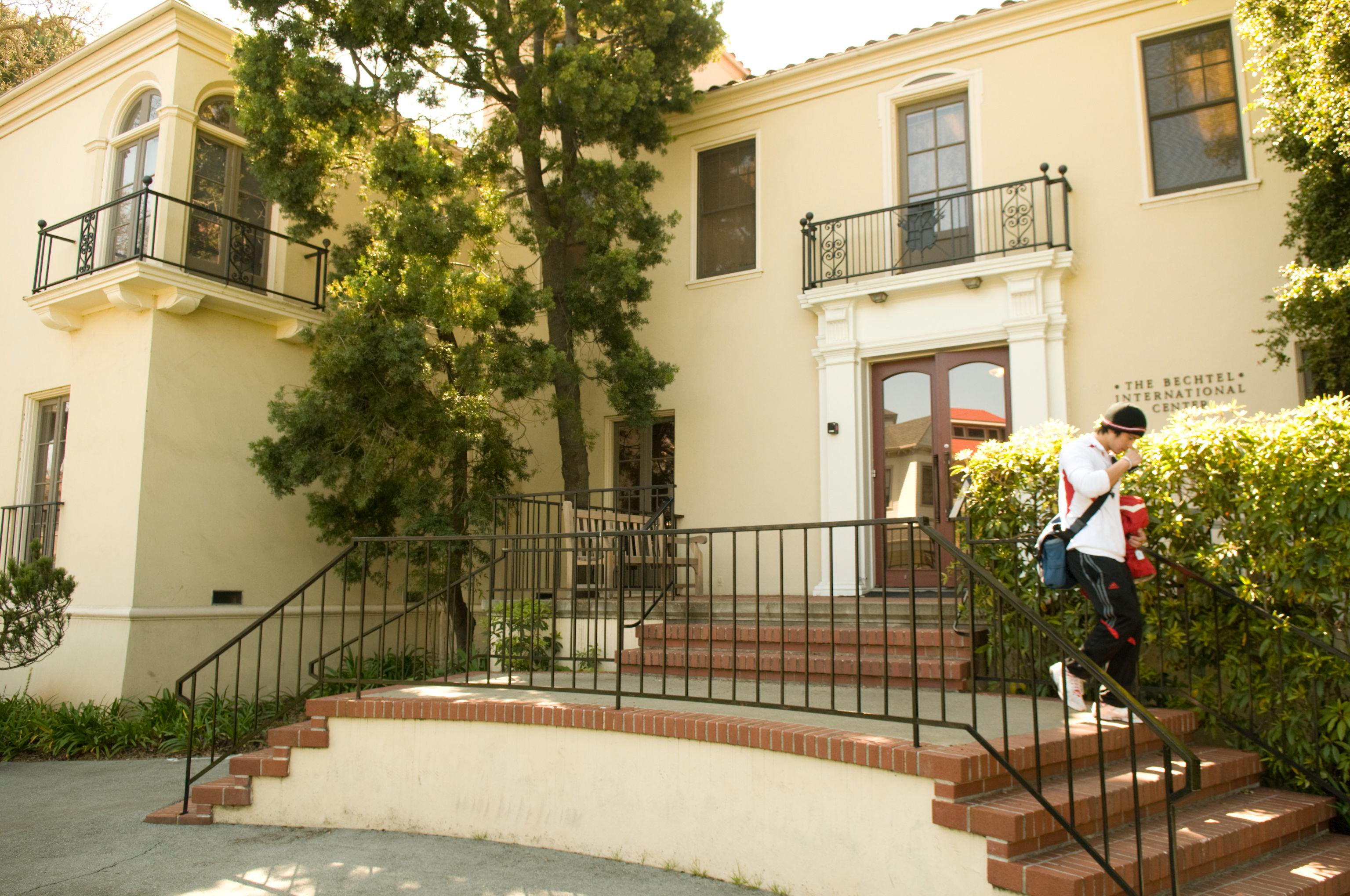As election day creeps closer, many students are preparing to vote, mailing off absentee ballots and voicing their predictions. Many international freshmen, however, are preparing for their first U.S. election and have noted its consequences are not just domestic.
While discussions on campus largely center around civic engagement and the election’s implications on domestic politics, international students are approaching the election from a global perspective.
“This is an election that impacts everyone,” said Alexia Papageorgiou ’28, who co-founded Teens for Democracy, an initiative for teens to engage in deliberative democracy. “There’s this misconception that, generally, internationals are not going to get impacted by this. But I think an American election impacts every part of the world.”
Papageorgiou, who is from Greece, has been actively engaged in the election. She attributes her engagement to her passion for politics and said the outcome could have an impact on Greece, which is currently in a territorial dispute with Turkey.
The election also holds a major significance for Komi Ergashev ’28, who is from England. Ergashev believes the outcome will not only affect the war in Ukraine and the Israel-Gaza conflict, but also his trajectory at Stanford and after graduation.
“The president elected now will be — at least for class of ’28 — the only president we’ll have the entire degree,” he said.
Ergashev said it’s a unique opportunity to be at a university in America, surrounded by politically engaged people during an election year.
“Having been an outsider to that [atmosphere] for my whole life, it’s very interesting to not only look inside, but now be in the middle of it,” Ergashev said.
On Nov. 5, Stanford students will be hosting the fourth annual Democracy Day, a campus-wide holiday with events related to democracy and elections. The Bechtel International Center will host their second-ever Stanford Democracy Day International Luncheon, where democracy scholars will discuss the state of global democracy and the U.S. election.
Papageorgiou said she is very excited to be immersed in the action. In hopes of maximizing the moment, she joined Stanford’s Democracy Day organizational committee and enrolled in two courses related to the election: SOC 68: “Election 2024: Democracy on the Ballot” and SOC 9N: “2024 Election, Understanding the National, Participating in the Local.”
However, not all international students are as invested in the election.
Spurti Nimbali ’28, who is from India, said the election is “not a topic of conversation that I’d willingly engage in.”
Similarly, Taarush Grover ’28, who is also from India, said the election only has a “moderate” impact on him and other international students.
“It might affect me, but, as an international, I have less of a say,” he said. “So it’s less input, less output.”
Grover said he has not been following the political news, and he will most likely not participate in Democracy Day. The election is not a major topic of discussion among him and his friends, he said.
Despite her limited involvement, Nimbali remains interested in learning more about the U.S. democratic process and seeing the outcome.
“I am definitely invested in the outcome of the election, because I think it definitely has a role to play when it comes to immigration laws,” she said. “I’m definitely here on a visa, so I do care about what happens in the election.”
Linara Gunasekera ’28, who moved to Sri Lanka after growing up in Boston until she was eight, holds the unique position of being an international student with the ability to vote.
“It’s really exciting to be able to vote,” she said. “Being able to vote as an international student who hasn’t lived here but has citizenship makes me feel like part of the community, makes me feel like I can actually make a difference and belong here.”
Gunasekera said the election has become more important to her since coming to Stanford. With her friends, she often discusses its implications for immigrants and people of color.
Papageorgiou said she has been constrained in her political activism because some states prevent internationals from interfering. She has tried to be as engaged as possible and completed six phone banking sessions for Kamala Harris, debating with Republican and undecided voters in Pennsylvania. In lieu of voting, she has encouraged as many people as possible to vote.
“I think [my friends are] tired of me telling them about the elections,” Papageorgiou said. “I show them the polls every single day, just to motivate them to get out and vote.”
